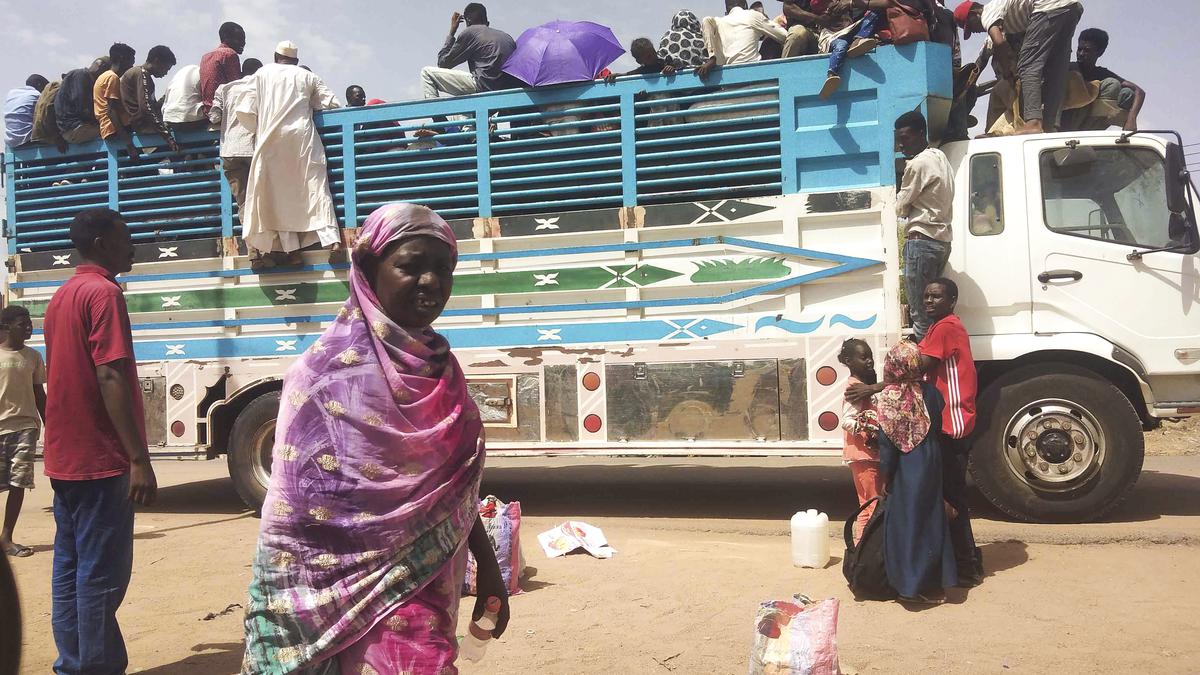
Before the Sudanese military and paramilitary fighters turned their weapons on one another final 12 months, Ahmed used to promote one in every of Sudan’s fundamental exports: gum arabic, a significant ingredient for international business.
Now he is out of business, and his story encapsulates the broader financial collapse of Sudan throughout 10 months of warfare.
Since fight between two rival generals started on April 15, Ahmed has been on the fighters’ mercy.
“When the war began, I had a stock of gum arabic in a warehouse south of Khartoum that was intended for export,” Ahmed advised AFP, asking to make use of solely his first title for concern of retaliation.
“To get it out I had to pay huge sums to the Rapid Support Forces,” the paramilitaries commanded by Mohamed Hamdan Daglo who’re at warfare with the Sudanese Armed Forces led by Abdel Fattah al-Burhan.
“I had to pay multiple times in areas under their control, before my cargo got to areas controlled by the government,” Ahmed mentioned.
But the federal government — loyal to the military — “then demanded I pay taxes” on the product, an emulsifying agent utilized in every little thing from tender drinks to chewing gum.
When the vans lastly made it to Port Sudan for export on the Red Sea, “authorities again asked for new taxes, and I had to pay storage fees six times more than before the war”, Ahmed mentioned.
His gum arabic — like many different Sudanese merchandise — by no means made it onto a ship. According to Sudan’s port authorities, worldwide commerce fell 23% final 12 months.
‘Decades’ to get better
The finance ministry, which did not set a nationwide finances for 2023 or 2024 and has foregone quarterly experiences, just lately raised the alternate fee for imports and exports from 650 Sudanese kilos to 950.
But that’s nonetheless far under the forex’s actual worth.
With most banks out of service, the one alternate fee that issues to abnormal Sudanese is on the black market, the place the greenback at the moment goes for round 1,200 Sudanese kilos.
“It’s a sign of the destruction of the Sudanese economy,” former Sudanese Chamber of Commerce head al-Sadiq Jalal advised AFP.
To make issues worse, a communications blackout since early February has hampered on-line transactions — which Sudanese relied on to outlive.
The warfare has led industries to stop manufacturing. Others have been destroyed. Businesses and meals shares have been looted.
The World Bank in September mentioned “widespread destruction of Sudan’s economic foundations has set the country’s development back by several decades”.
The International Monetary Fund has predicted that even after the combating ends, “years of reconstruction” await the northeast African nation.
Sudan suffered beneath a crippled economic system for many years and was already one of many world’s poorest international locations earlier than the warfare.
From farming to famine
Under the Islamist-backed regime of strongman Omar al-Bashir, worldwide sanctions throttled growth, corruption was rampant, and South Sudan cut up in 2011 with many of the nation’s oil manufacturing.
Bashir’s ouster by the army in 2019 following mass protests led to a fragile transition to civilian rule accompanied by indicators of financial renewal and worldwide acceptance.
A 2021 coup by Burhan and Daglo, earlier than they turned on one another, started a brand new financial collapse when the World Bank and the United States suspended important worldwide assist.
More than six million of Sudan’s 48 million folks have been internally displaced by the warfare, and greater than half the inhabitants wants humanitarian assist to outlive, based on the United Nations.
Thousands of individuals have been killed, together with between 10,000 and 15,000 in a single metropolis within the western Darfur area, based on U.N. specialists.
Now the oblique loss of life toll can also be rising.
Aid businesses have lengthy warned of impending famine, and the UN’s World Food Programme is “already receiving reports of people dying of starvation”, the company’s Sudan director Eddie Rowe mentioned in early February.
The Sudanese state “is completely absent from the scene” in all sectors, economist Haitham Fathy advised AFP.
Chief amongst these is agriculture, which may have helped stave off starvation.
Before the warfare, agriculture generated 35-40% of Sudan’s gross home product, based on the World Bank, and employed 70-80% of the workforce in rural areas, the International Fund for Agricultural Development mentioned.
But the warfare has left greater than 60% of the nation’s agricultural land out of fee, based on Sudanese analysis organisation Fikra for Studies and Development.
In the wheat-growing state of al-Jazira, the place RSF fighters took over swathes of farmland south of Khartoum, farmers have been unable to have a tendency their crops. They noticed their livelihoods wither away.
From the wheat fields to Ahmed’s gum arabic warehouse, the story is identical.
His financial savings spent, his inventory gone and his future bleak, Ahmed — like a lot of Sudan’s business class — has closed up store.
Source: www.thehindu.com



